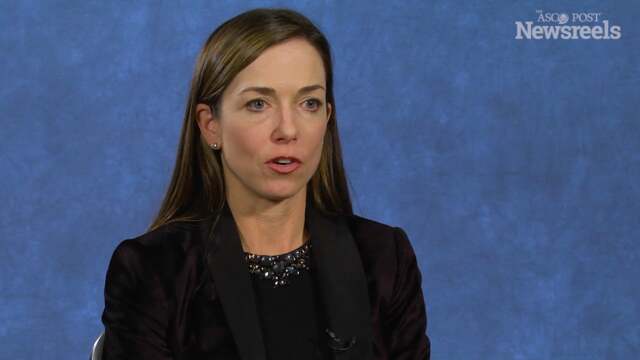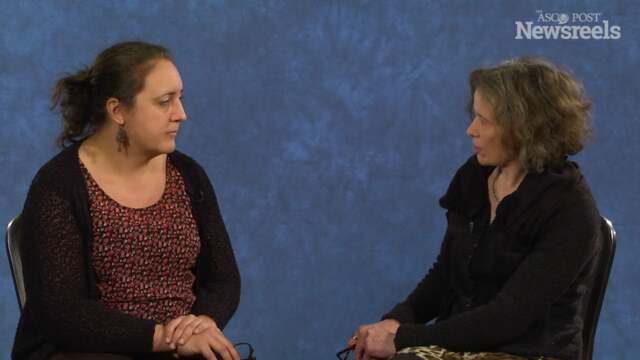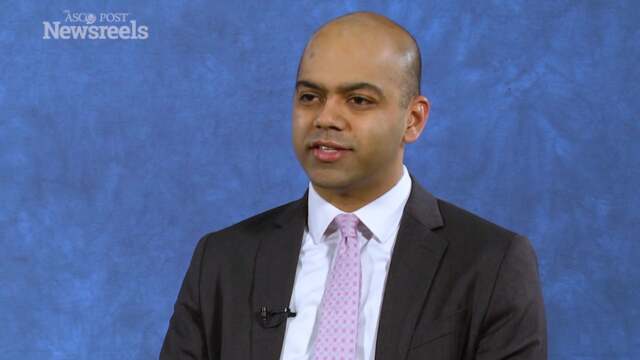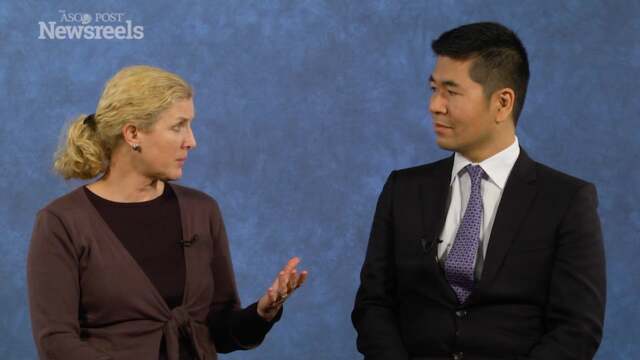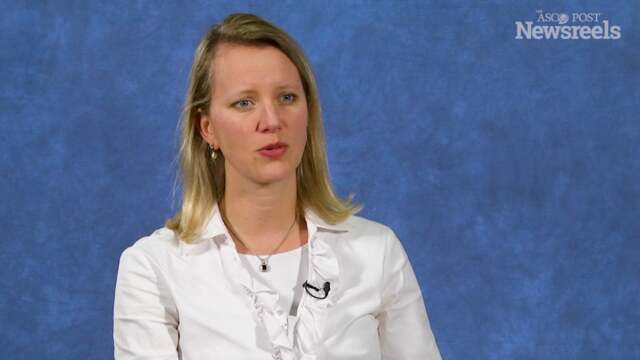Samuel Smith, PhD, on Tamoxifen Adherence: Results of the IBIS-1 Study
2016 San Antonio Breast Cancer Symposium
Samuel Smith, PhD, of Queen Mary University of London, discusses study findings on menopausal symptoms as predictors of long‐term adherence in an International breast cancer intervention study (Abstract S5-03).
Sara A. Hurvitz, MD, of the UCLA Jonsson Comprehensive Cancer Center, discusses findings on the biological effects of abemaciclib in a neoadjuvant study for postmenopausal patients (Abstract S4-06).
Sabine Linn, MD, PhD, and Sonja Vliek, MD, both of the Netherlands Cancer Institute, discuss study findings on adjuvant ibandronate in postmenopausal women with early breast cancer (Abstract S6-02).
Nikhil Wagle, MD, Dana-Farber Cancer Institute, discusses the genomic sequencing of ER-positive metastatic breast cancer that has become resistant to therapies and the implications for the choice of next therapy, clinical trial eligibility, and novel drug targets (Abstract S1-01).
Lisa A. Carey, MD, and Maki Tanioka, MD, both of the University of North Carolina, discuss study findings on weekly paclitaxel and trastuzumab with or without lapatinib for HER2-positive breast cancer (Abstract S3-05).
Anne Hudson Blaes, MD, of the University of Minnesota, discusses the association between aromatase inhibitors, endothelial function, and early heart disease (Abstract S5-07).
